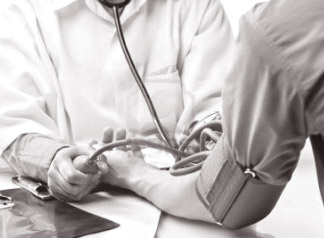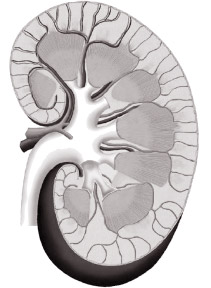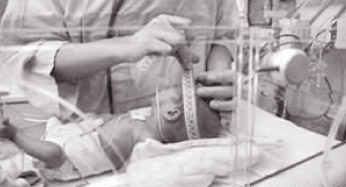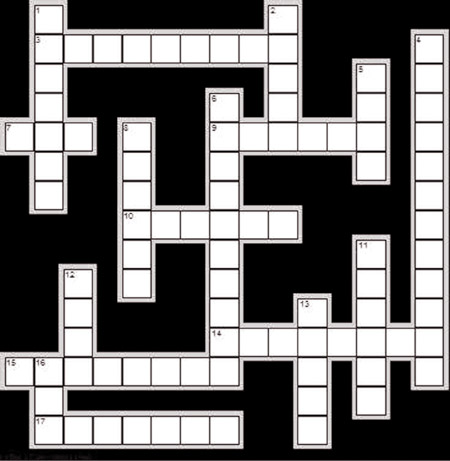Health Watch
Competency assessment scheme for doctors
Dr. Kasun Ratnayake, Dr. Samanthi Athukorale and Dr.
Thishan Nallaperuma (United Kingdom)
We appreciate the apt and proactive decisions taken by the Health
Minister to enhance the standard of the health sector whilst regulating
vital areas such as drug mafia, pharmacy and test laboratory networks
where most of the ministers were reluctant to interfere.
 The intention of this article is to bring Minister’s urgent attention
to another key area that has to be improved i.e. ‘standardization of
quality of doctors’ which is a hidden concern although that requirement
was exposed to the public intermittently when certain incidents occur.
However this issue is very well known by the doctors especially who have
obtained overseas training as they can see the bigger picture
comparatively. The intention of this article is to bring Minister’s urgent attention
to another key area that has to be improved i.e. ‘standardization of
quality of doctors’ which is a hidden concern although that requirement
was exposed to the public intermittently when certain incidents occur.
However this issue is very well known by the doctors especially who have
obtained overseas training as they can see the bigger picture
comparatively.
UK’s Competency Assessment System
General public might believe that all doctors are equally competent
and knowledge wise up-to-date as they enter the medical schools
obtaining highest marks in the A/L bioscience stream. However many
incompetent doctors are protected owing to the reputable nature of the
profession due to lack of competency assessment system.
The secretary of state for Health (Health Minister) in UK, Jeremy
Hunt has confirmed few months ago to Parliament that all doctors’ skills
are to be reassessed every year to ensure they are fit to practise. Hunt
said: “We want to have the best survival rates in Europe for the major
killer diseases. Doctors save lives every day and making sure they are
up to speed with the latest treatments and technologies will help them
save even more. This is why a proper system of revalidation is so
important.”
As per his directives, the doctor’s regulatory body in UK, the
General Medical Council (GMC) already commenced a program from last
December. The assessment will take the form of an annual appraisal and a
more comprehensive meeting every five years. Doctors will be expected to
demonstrate that they meet clinical standards and have kept up to speed
with the latest developments in their field. Appraisals will include
feedbacks from patients and colleagues. Subsequently his decision has
already been communicated to all doctors via letters and emails
including doctors in Sri Lanka who are still maintaining the GMC
registration after completion of their UK training (foreign training).
At present, doctors in our country can work until the retirement
without facing any formal assessment of their competency. As a matter of
fact unlike most of other professions if doctors don’t upgrade their
knowledge with latest treatments, drugs etc, their knowledge would
become outdated and it will badly affect the lives of patients. Hence
continuous education for doctors is a mandatory requirement to be
implemented.
Continuous Professional Development Scheme
In UK, all doctors shall undergo CPD (Continuing Professional
Development) scheme under the guidance of the GMC and required to obtain
‘marks’ annually. Regardless of their age or seniority, each doctor
shall obtain minimum level of marks in each year and it will allow them
to be in the system. All doctors currently in the practice are
participating in (even at the age of 65) various such training programs
in order to earn CPD marks and survive in the system. According to their
new Competency Assessment scheme, GMC will assess their competency -
whether they have grasped the given knowledge and fit to be in the
health system. Otherwise no country can assure the best care for their
patients.
 Especially all Consultants and Postgraduate trainees shall carryout
medical audits (identify the gaps of existing treatments or any related
systems and overcome them), researches, publishing articles to the
journals etc. Especially all Consultants and Postgraduate trainees shall carryout
medical audits (identify the gaps of existing treatments or any related
systems and overcome them), researches, publishing articles to the
journals etc.
Competency and attitude
In fact we don’t have any system to encourage our doctors to maintain
their standards. Majority of doctors are not aware of the new
improvements in the world as they never do any knowledge enhancement
activity after obtaining the MBBS.
Poor attitude - Some of the doctors are very rude to patients and
they think that they are gods as people come to them when they become
helpless. In UK, doctors should call patients as ‘sir’. Although we
shouldn’t go up to that extent at least if we can call them respectfully
that is fine.
In case if a UK doctor makes a mistake, the patient can directly
complain to the GMC and subsequently they will inquire the issue. If the
issue is serious, the GMC will withdraw the registration and
consequently he/she cannot practice as a doctor lifelong. Some of such
doctors are currently doing non medical jobs. Few years ago, a Sri
Lankan VOG’s registration was cancelled by the GMC after conducting an
inquiry because he was medical examining pretty ladies in an unnecessary
manner with a bad intention.
Our consultants
In the absence of mandatory CPD (Continuing Professional Development)
scheme in Sri Lanka, more than 90% of consultants are concentrating
fully on earning money than engaging in knowledge enhancement activities
instead of doing both equally. Since there’s no official requirement
(demand) to allocate their time on CPD, this area is totally neglected.
They obtain the updates regarding new drugs through medical sales
representatives attached to the pharmaceutical companies. The sales reps
are coming behind doctors and explain about their expensive drugs like
parrots and subsequently doctors would prescribe them for poor patients
even though most of them are inappropriate for the illnesses.
In Sri Lanka, doctors can prescribe very powerful, expensive and
harmful antibiotic drugs for patients on their own decision, but in UK
there are set drug policies that they should adhere with. They should
always start from mild and less harmful drugs.
Consequently our doctors can receive financial benefits and foreign
trips as bribes from the pharmaceutical companies. Some trips are for
workshops but most of the doctors are doing shopping! As a whole they
don’t read medical journals, carrying out audits etc.
Consultants in Teaching Hospitals (TH)
The competency of doctors in the THs shall be inline with excellent
level compared to others due to few reasons.
When a patient gets badly ill or requires further treatments he/she
will be transferred from rural to TH level hospitals for better medical
facilities and the attention of best knowledgeable doctors.
Doctors in the THs are responsible for teaching medical students and
Postgraduate trainee doctors (future consultants).
Note: Unlike in the past, some of the consultants in the NHSL
(National Hospital of SL) are incompetent because of their outdated
knowledge for years along with inappropriate transfer system followed by
the Ministry.
90% of supervisors in the Postgraduate exams are consultants in THs.
When they are “equipped with outdated knowledge” in the areas of
academic and clinical skills how can they assess the students properly?
NOTE: This is another practical issue. Some students who don’t have
good knowledge have got through the exams during the past as a result of
such assessment panels who don’t question students comprehensively. Last
year our MD (General Medicine) standards were degraded by the GMC hence
our MD holders have to follow a long route in order to go to UK after
obtaining the GMC registration.
To bridge the above said significance gaps, all doctors especially
consultants- academically and clinically shall further improve their
knowledge through Continuous Professional Development system.
As the existing transfer system is also thoroughly responsible for
these lapses, the Ministry should introduce a proper transfer scheme at
least for consultants until they introduce an evaluation system like in
UK to mitigate the damage.
To be continued
Chronic renal failure in North Central Province... :
Easy and permanent solution
D.D.Palihakkara.
Certainly there are remedies and this disaster can be controlled by
an effective system, where many Departments, Officials, Organisations,
Media, Farmers and Consumers should participate as a team to achieve
T.Q.M. level. (Please read the book on Medical Negligence by the writer.
ISBN 978-9- 555113- 60-1)
1. Before a patient lead to Chronic Renal Failure level, he
should be identified and commenced on Chelating Therapy. This should be
done to remove the heavy metals from the body as the kidneys are
incapable of removing them and they get accumulated in the body causing
pathological changes which give rise to symptoms. For this there are
drugs such as Dimercaprol (B.A.L), Penicillamine, EDTA group of drugs
etc. If C.R.F. is due to heavy metal poisoning, there is no reason to
suspect the results. This could be done in separate clinical trials
under Pharmacologists.
 2. Removing the poisonous heavy metals such as As, Hg, Cd, Pb,
and excess of Cu,Fe, from the soil. This is a tedious process. In Sri
Lanka, this could be done by Bio methods. This process is called
Phytoremediation (to remove heavy meals from the soil by bio methods.)
For this Brasica junsea (Mustard) cultivation will be very effective.
Oil can be expressed from the Mustard seeds which will not contain any
heavy metals and could be used as an edible oil (as in India) or could
be used as bio diesel. 2. Removing the poisonous heavy metals such as As, Hg, Cd, Pb,
and excess of Cu,Fe, from the soil. This is a tedious process. In Sri
Lanka, this could be done by Bio methods. This process is called
Phytoremediation (to remove heavy meals from the soil by bio methods.)
For this Brasica junsea (Mustard) cultivation will be very effective.
Oil can be expressed from the Mustard seeds which will not contain any
heavy metals and could be used as an edible oil (as in India) or could
be used as bio diesel.
3. Removing poisonous heavy metals from water resources. This
is a little difficult process where we have to use trap and purge method
by using ion exchange resin filters to trap the metals and purging to be
done to clean the filters.
4. The most important part is prevention. That is to take all
precautions not to add poisons to our soil. In here the team effect
should be exercised to achieve the goal. This could be done at various
levels.
(a) Banning all the Pesticides, Weed killers, Fungicides, Chemical
fertilisers which contain heavy metals and ban on re-chargeable Cadmium
batteries.
(b) Educating officials, farmers, consumers, school children, and the
public at large on how to handle dangerous poisons and the disposal of
the containers etc.
(c) Amending the Poisons, Opium and Dangerous Drugs Ordinance and to
include relevant pesticides, fungicides, weed killers etc. in Part 1
category so that sale of such poisons could only be done by a Registered
Pharmacist on Sale of Poisons Register. (Please read Part 1 of the above
Ordinance as to understand how this could be done under Law to stop
going poisons to wrong hands.)
(d) To educate the farmers and officials that the myth of getting
maximum yield by spending enormous amount of money on poisonous
chemicals to achieve the result. For us it is always better to get a
moderate yield with less expenditure.
(e) To encourage to use organic fertilisers to improve the quality of
the soil and to use Pest repellents / Insects repellents of biological
origin such as Margosa seeds, Tobacco waste, Citronella ash (by-product
after steam distillation of Citronella oil) which will reduce the
density of pests, in turn it will enable to protect creatures who are
living on them.
(f) To motivate farmers to do the farming with others simultaneously
so that the existing pests will be distributed and diluted so that the
harm to the crops will be minimal per person. (This concept was used in
Vel Vidhane era)
(g) Educating the public the way of living in harmony with the
environment, causing minimal or no damage to the nature.
The writer invites all the nature loving people who are concerned
about the above problem for their views so that better methods could be
formulated to address this problem.
Scans show premature-baby brain arrested development
Premature birth may interrupt vital brain development processes,
medical scans reveal.
|

Brain development occurs throughout and long after pregnancy |
Researchers at King's College London scanned 55 premature infants and
10 babies born at full term, using a novel type of MRI scan.
The brain scans showed arrested development in the premature babies
at a key stage of maturation.
Experts say the work, in PNAS, could further understanding, but that
parents should not be alarmed by the findings.
In recent decades there have been big advances in caring for
premature babies, which mean most can go on to live a healthy life.
The researchers say the new type of imaging - which tracks the
movement of water in the brain - will enable them to explore how the
disruption of key processes might cause conditions such as autism. It
could also be used to monitor possible treatments to prevent brain
damage.
Interrupted development
The scans showed cortical development was reduced in the preterm
babies compared with those born at full term, with the greatest effect
in the most premature infants - those born at about 27 weeks. The brain
regions affected govern social and emotional processing, as well as
memory.
The same children were assessed at two years of age and those who had
been born prematurely performed less well on neurodevelopmental tests,
which the researchers say suggests the weeks a baby loses in the womb
may matter.
Lead investigator Prof David Edwards said: "The number of babies born
prematurely is increasing, so it has never been more important to
improve our understanding of how preterm birth affects brain development
and causes brain damage.
"We know that prematurity is extremely stressful for an infant, but
by using a new technique we are able to track brain maturation in babies
to pinpoint the exact processes that might be affected by premature
birth."
-BBC
Free Eye Camp in Ratmalana
Doctors Wives Association in collaboration with Helpage will conduct
a free eye camp for the needy in Ratmalana on Saturday June 1 from 8.30
a.m to 12 p.m.
Chrissy Aloysius of the Doctors Wives Association said that about 150
children and adults are expected to be treated in this camp.
Healthwatch Medical Crossword No.57
Crossword No. 57 is based on ‘Healthwatch’ articles of February 18,
2013.
Across
3. Fill in the blank. Premature ------- (9) in women is a main risk
factor for osteoporosis.
7. This is one of the commonly fractured parts of the body in
osteoporosis.(3)
9. A type of fish which is rich in Vitamin D.(6)
10. A type of nut which is rich in calcium.(6)
14. Even an action such as this could cause a fracture in a
susceptible individual.(8)
15. A natural source which could boost Vitamin D levels in the
body.(8)
17. Intake of this, is a risk factor for both oral cancer and
osteoporosis.(7)
Down
1. This is known to be a risk factor for osteoporosis.(7)
2. Fill in the blank. ------- (5) chewing can be a risk factor for
oral cancer.
4. The study of rheumatism, arthritis, and other such disorders.(12)
5. A mineral which is known to help in wound healing.(4)
6. The bone forming cell found in bone tissue.(10)
8. Cancer involving this organ, is one of the commonest in Sri
Lanka.(6)
11. Fill in the blank. Getting your ------ (6) checked would help in
preventing falls.
12. A common symptom following a fracture.(4)
13. The bone of the thigh or upper hind limb, articulating at the hip
and the knee.(5)
16. Badulla District belongs to this province.(3)
Crossword created by Dr. Kelum Pelpola. Sponsored by WISH Institute.
Coordinated by Edward Arambewala.
Send in your entries to reach us by June 10, 2013 to Healthwatch
Medical Crossword 57, C/O Features Editor, Daily News - Editorial, 35, D
R Wijewardena Mawatha, Lake House, Colombo 10.
 |





